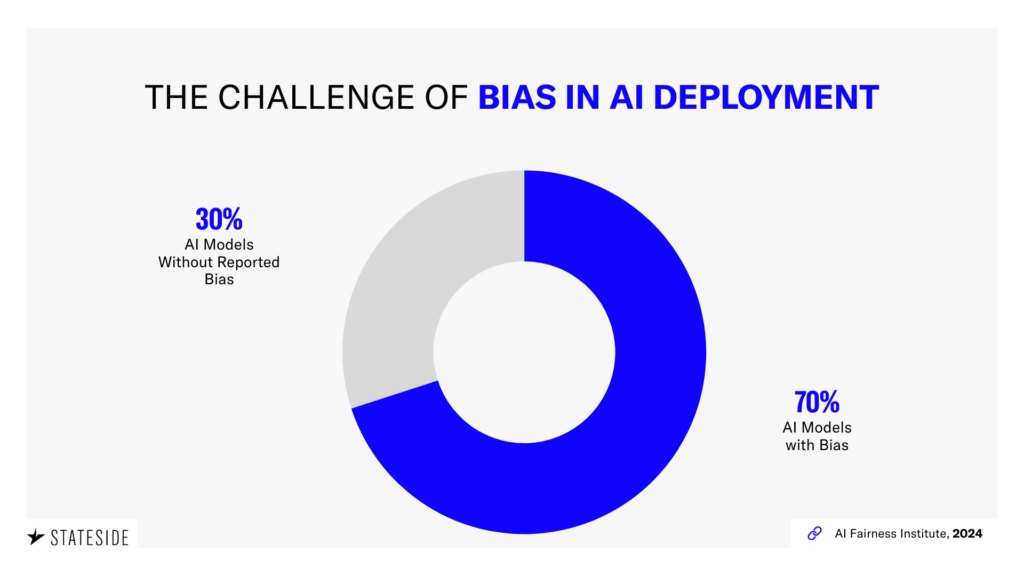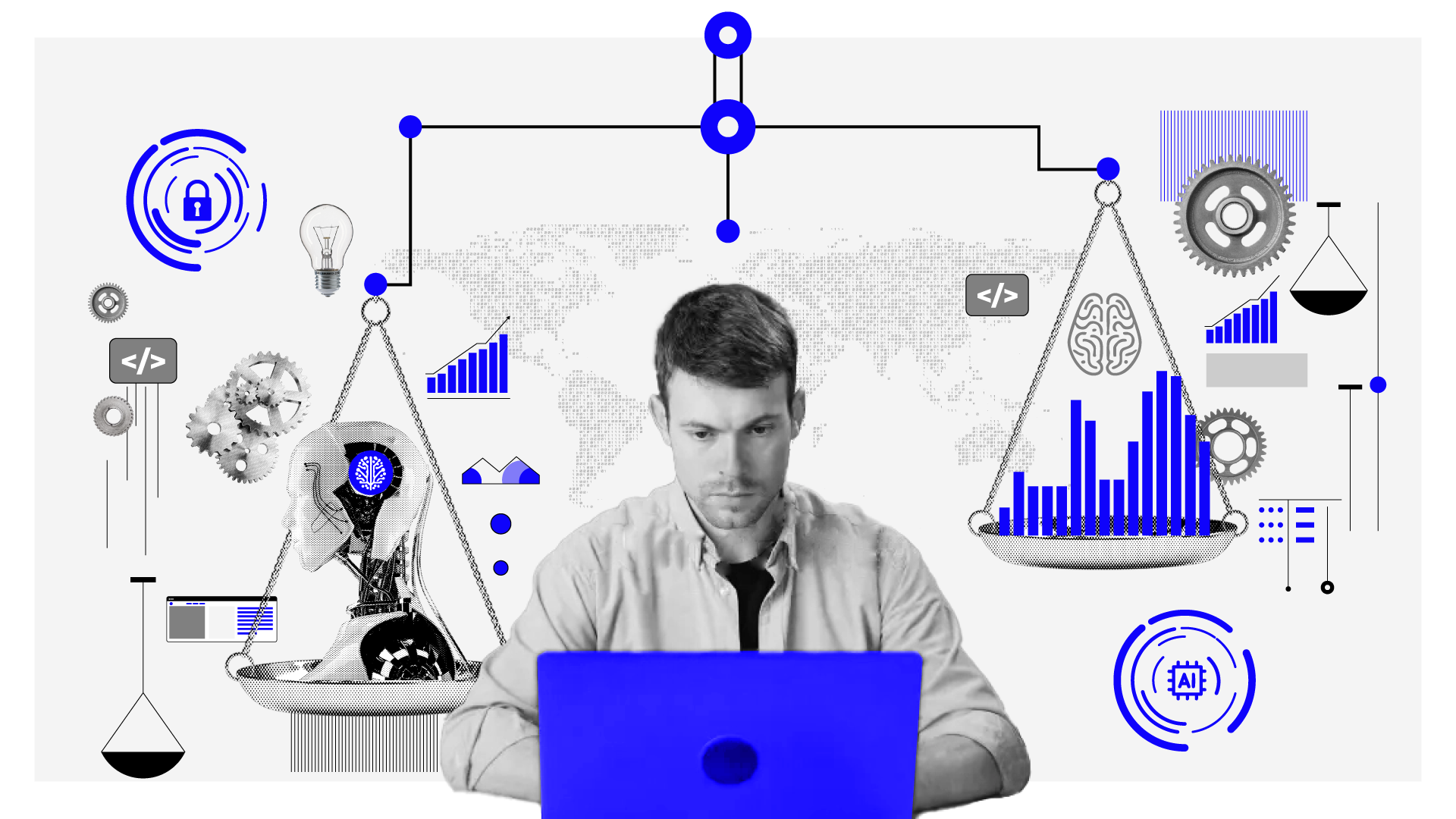The increased expansion of AI in 2025 has given rise to an era of unprecedented technological advancement. However, this powerful technology is not without its challenges, particularly concerning ethical implications. Navigating the complexities of bias and responsibility has become a crucial concern for developers, architects, and builders of these AI systems.
The choices made during development directly influence the fairness, transparency, and societal impact of AI applications. As AI increasingly spreads through critical sectors, from healthcare and finance to criminal justice and hiring, the ethical considerations for developers are no longer theoretical but represent tangible responsibilities with far-reaching consequences. This article explores the crucial role of the ethical developer in this evolving landscape, highlighting the key challenges and offering guidance for building responsible AI in 2025 and the years to come.
How do we understand the Bias in AI Development?
Bias in AI is an omnipresent issue, often stemming from the data used to train these systems. According to a 2024 report by the AI Fairness Institute, over 70% of deployed AI models exhibit some form of bias, leading to skewed or discriminatory outcomes. This bias can take on several forms, including historical bias (reflecting past societal inequalities), representation bias (where certain groups are underrepresented in the data), and measurement bias (flaws in how data is collected and labeled).

For developers, understanding the sources and types of bias is the first critical step towards mitigation. Ignoring these potential risks can lead to AI systems that keep alive and even amplify existing societal prejudices, causing significant harm. As Dr. Joy Buolamwini, a leading AI researcher at MIT, states, “AI is not neutral. It reflects the priorities, the flaws, and the biases of those who build it and the data they collect.” Developers, therefore, have a direct ethical obligation to actively seek out and address these biases throughout the development lifecycle. You can learn more about building responsible and ethical tech teams by exploring resources on Stateside’s approach to talent.
The Developer’s Responsibility: Building Ethical AI
The duty for ethical AI development is on developers’ expertise. This goes beyond simply writing code; it involves a conscious and proactive commitment to building fair and transparent systems.
Several key principles guide the ethical developer:
- Prioritizing Fairness and Equity
Developers must actively work to identify and mitigate bias in their datasets and algorithms. This includes employing techniques like data augmentation, bias detection tools, and fairness metrics to evaluate model outputs across different demographic groups. As Timnit Gebru, former co-lead of Google’s Ethical AI team, emphasizes, “We need to move beyond simply identifying bias to actively designing for fairness from the outset.”
- Ensuring Transparency and Explainability
Black-box AI systems, where the decision-making process is opaque, pose significant ethical challenges. Developers should strive for transparency by using explainable AI (XAI) techniques that allow users and stakeholders to understand how AI systems arrive at their conclusions. This is particularly crucial in high-stakes applications where trust and accountability are vital. Our commitment at Stateside extends to ensuring the talent we connect you with understands these decisive ethical considerations.
- Upholding Data Privacy and Security
AI systems rely heavily on data, often including sensitive personal information. Ethical developers must prioritize data privacy and security throughout the development process, adhering to regulations such as GDPR and CCPA and implementing robust security measures to protect user data. Building trust requires a commitment to responsible data handling.
- Promoting Accountability and Auditability
Establishing clear lines of accountability for AI system failures or biased outcomes is essential. Developers should design systems with auditability in mind, allowing for the tracking and review of decision-making processes. This enables the identification of flaws and the implementation of fixing measures. With us as your partner, you gain access to talent that values accountability and ethical development practices.
- Fostering Collaboration and Diverse Perspectives
Developing ethical AI requires more than one person. Developers must collaborate with ethicists, social scientists, and domain experts to gain a comprehensive understanding of their work’s potential societal impacts. Encouraging diverse perspectives within development teams is also crucial for identifying and mitigating potential biases. We recognize the strength of diverse teams in building robust and ethical AI solutions.
Shaping a Responsible AI Future
The ethical developer in the age of AI is more than just a skilled coder; they are a critical thinker, someone who oversees technology with accountability, and a proactive advocate for fairness and equity. Navigating the complex landscape of bias and responsibility requires ongoing education, critical self-reflection, and a deep commitment to ethical principles. As AI continues to evolve and integrate into the construction of our society, the choices made by developers today will shape the ethical trajectory of this powerful technology for years to come. By prioritizing fairness, transparency, privacy, accountability, and collaboration, developers can play a pivotal role in building a future where AI benefits all of humanity.If you want to explore how to build ethical and responsible AI teams with top talent, schedule a meeting with our experts.



